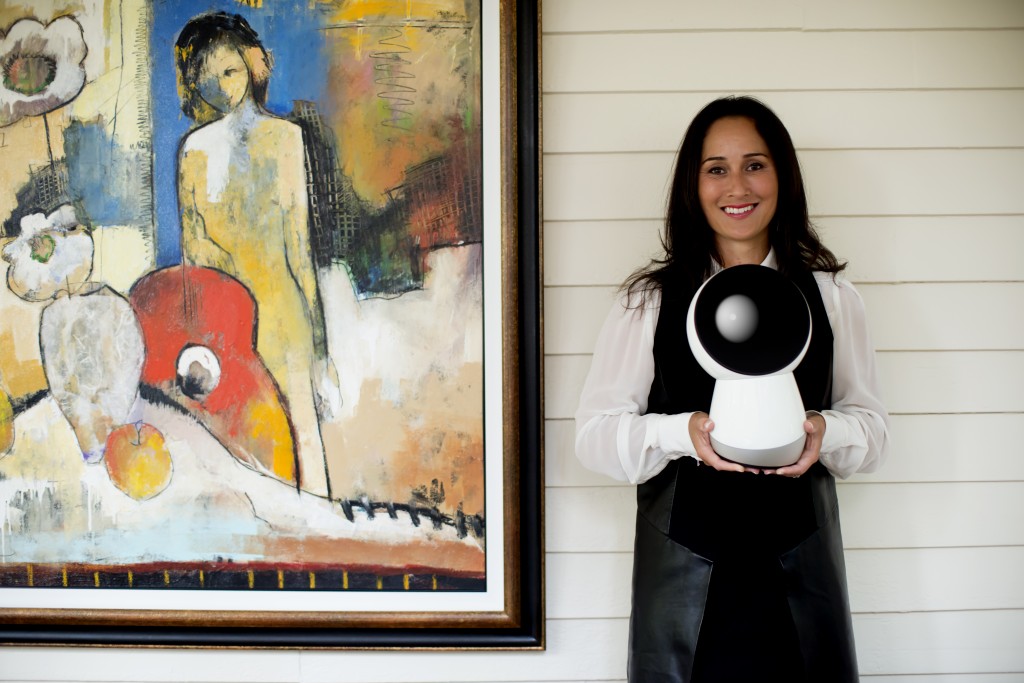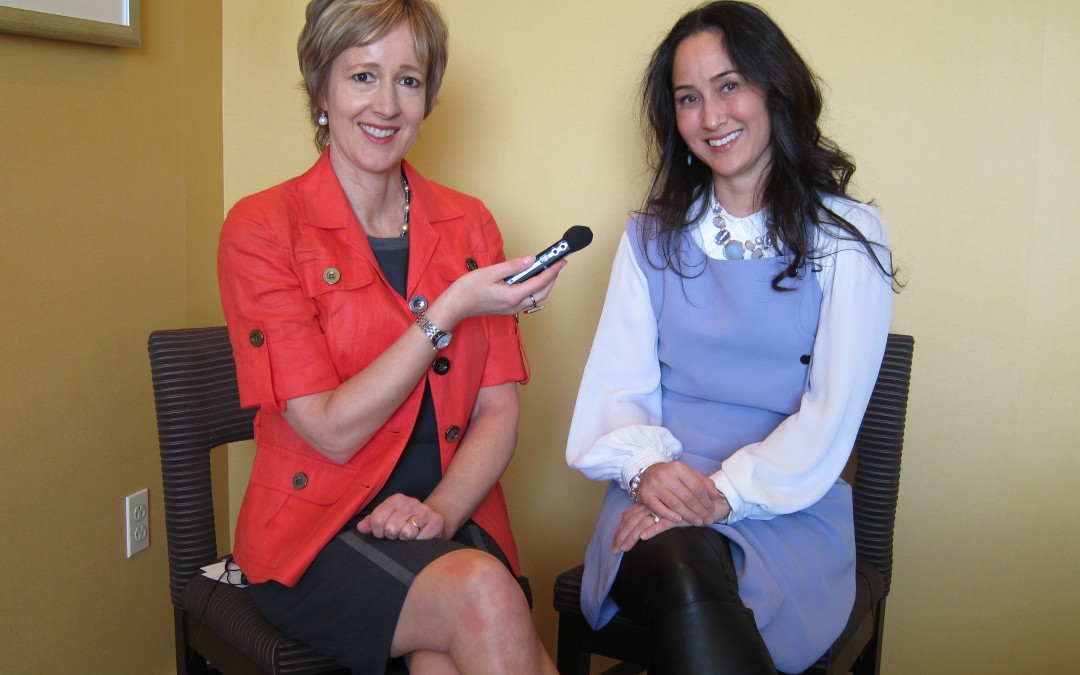By Alison van Diggelen, host of Fresh Dialogues
Many people worry about the consequences of tech innovation, in particular: how will automation and robots impact our jobs? I sat down to explore the impact of robots and the chance of “robo-apocalypse” with social robot pioneer Cynthia Breazeal, founder of the Jibo Robot and professor at MIT. Jibo is a desk top robot that acts like a personal assistant for the family. It can see, hear, speak, dance, and according to its makers, it can even “relate to people.” Imagine a cross between R2D2, an iPad and the Pixar lamp. Breazeal explains how she sees the big “value add” of social robots and why she thinks the potential unintended consequences of robots demands a thoughtful dialogue between robot experts.
Excerpts of this interview were featured on my BBC World Service Report: Elon Musk, Cynthia Breazeal Explain Why Robots Are Coming To Your Home
Here are highlights of our discussion (comments have been shortened for length and clarity):
van Diggelen: Will robots take our jobs, and why are we obsessed by that?
Breazeal: When robotics first came onto the market, it was about replacing human labor, so that’s been the assumption: When any robot is introduced, “it’s about replacing people.”
Social robotics as a whole research discipline has been about a very different paradigm, which is about partnership. It’s about robots that can support and collaborate with people. Jibo is not being designed to replace anyone or anything. Sometimes peole talk about it’s going to replace my dog….it’s not about that. Jibo creates a different kind of relationship.
van Diggelen: What is Jibo?
Breazeal: Jibo breaks down barriers (for people uncomfortable with tech gadgets) by feeling much more like a someone than a something. In my research at MIT, we’ve put very sophisticated humanoid robots, you name it, but when you create that experience for people, that familiar, warm experience, people respond to it. I think Jibo has an appeal across a much broader demographic.
Jibo is about supporting the family, supporting those who help care for the family, doctors and nurses…helps make the whole human and technological network stronger and better able to serve human values. That’s the big “value add” of this kind of technology and that’s certainly where my heart is because certainly as a mom, I completely understand the value and importance of the human connection and the human relationships. And we have human responsibilities to each other. Technology should not be mitigating that or interfering with that. We want technology to really support that.

van Diggelen: We’ve had warnings from Elon Musk, from Stephen Hawking saying artificial intelligence needs some regulation…they’re concerned about this “robo-apocalypse” happening, so talk to that…
Breazeal: I think in terms of the “robo-apocalypse”…we love that theme (laughter). Throughout our stories, our legends…
van Diggelen: Movies…
Breazeal: In many ways, it’s a tool that we use as a culture to ask the question: What does it mean to be human? I really think it stems from that. So whether it’s aliens or killer viruses or robots, it is that “otherness” that pushes up against our humanity; that causes us to reflect upon the human condition. For robots, because they have existed in our science fiction long before we could actually build them, this is our cultural undercurrent people can’t help but go there no matter what.
van Diggelen: But the difference is, it’s not some luddites who’re saying this: it’s people like Stephen Hawking, Elon Musk and Bill Gates…warning people about the dangers of artificial intelligence.
Breazeal: Right so…there’s a difference between the apocalypse versus there could be unintended consequences that we need to be mindful of. So I’m agreeing that with any technology capable of tremendous impact on how we live our lives, there’s always those two sectors. Certainly with robotics, I certainly believe that it’s going to become a pervasive technology in our lives, so it is worth considering, how do we go for the good and avoid the bad?
van Diggelen: But how do you do that? From where you’re sitting, does it need government regulation, standards? What’s the best way to proceed?
Breazeal: I’m not sure we honestly know…the bottom line is: it starts with us and having thoughtful dialogue and discussion to try to really understand what the opportunities and the unintended consequences really could be, before we start jumping to conclusions. I think the most important thing we can do right now is to have this thoughtful dialogue. Even things we started off with, like peoples’ assumptions (that) all robots are about replacing people versus this other side: robots are about supporting people.
Find out more about Fresh Dialogues Inspiring Women Series and our BBC World Service Reports




